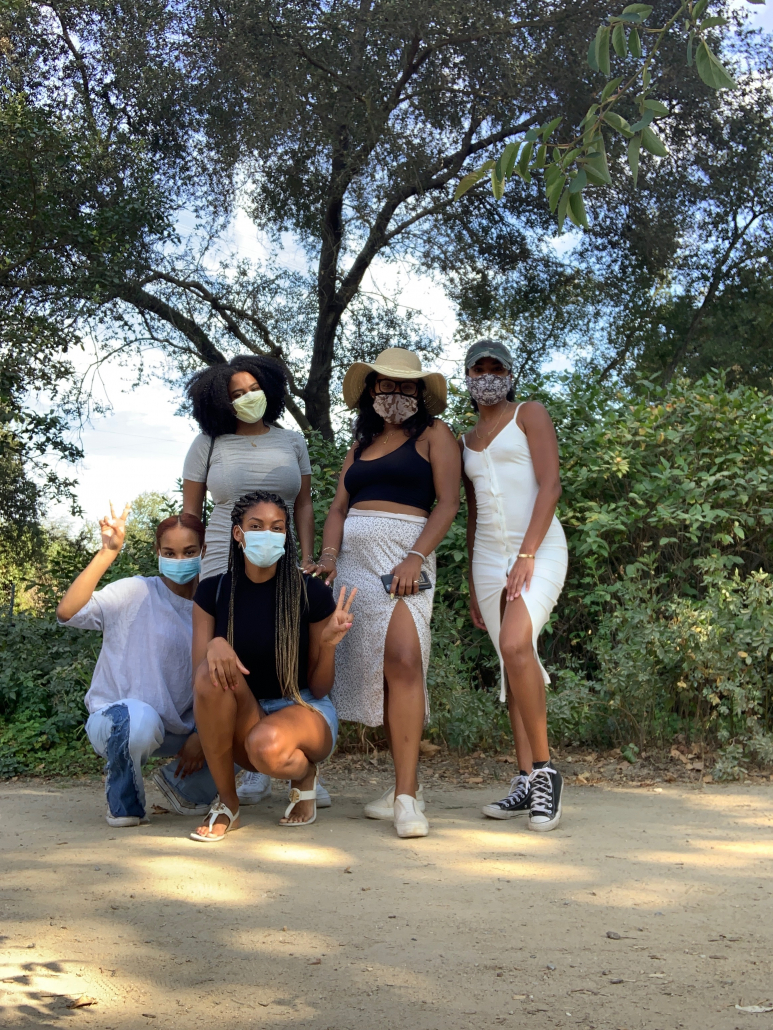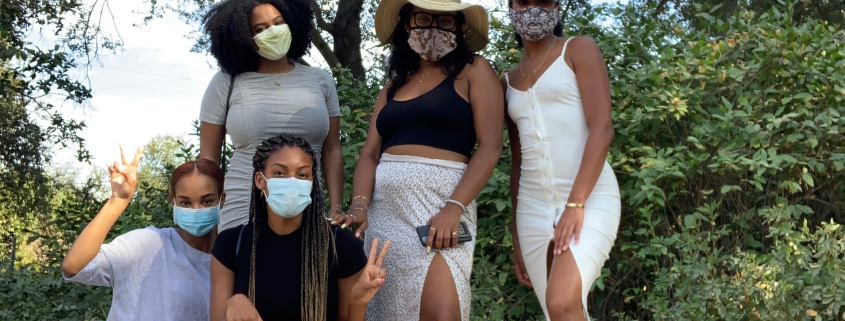Kó Society provides support for Black women on campus

As glasses clink, the gathering may seem to be an ordinary dinner, but expectations are exceeded when the main guests include empowerment, grace, fellowship and belonging. While USC may be a predominantly white campus, Kó Society is creating a community for Black women to find unrelenting support.
Kó Society is an organization that aims to change what it means to be a Black woman on USC’s campus. The club, founded in Summer 2020, prioritizes the social, academic and professional needs of Black women by hosting monthly dinners, planning speaker series and raising funds for local charities.
Founder Adenike Makinde, a junior majoring in real estate development, developed the idea of Kó Society a year before its culmination. She said the inspiration came from needing a space to spend time with her close friends on campus while navigating her busy schedule, and she figured organizing meals with peers was a good place to start.
“I love going to eat,” Makinde said. “That’s my favorite thing to do is find new restaurants and explore different parts of L.A. I wanted to combine my passion for food and bonding and being able to connect with a big group.”
The word “Kó” in Yoruba means “to bring,” which the club aims to do by fostering dialogue and community with people across different academic programs who bring their own insight, according to Makinde. The members on its e-board range in a variety of focuses of studies but all hold one driving passion: creating a safe professional social club for Black women on campus.
“The root of Kó Society … it’s just the ability to connect, it’s transferable across culture and nations to connect over food,” Makinde said. “It’s just so seamless with all of us having very similar experiences.
Dining is the main undertaking of Kó Society. Last November, Makinde hosted a dinner with the Black women in her life that she had met in a variety of communities at USC. She had a thought: What if she made it a normality?
“I felt like a lot of the social pieces that I’d seen in other communities at USC were not represented for Black women,” Makinde said. “From there, Kó Society was started as a social club really focused on bonding dinners around the city and then bringing USC alumni to those dinners to discuss professional development.”
In its earliest stages Kó Society served as a networking agency between Makinde and alumni she valued and admired. It has since evolved into something more representative of the community and space she wanted for herself and others like her.
“It’s really morphed into helping Black women find their identity and find value in their facets of their culture,” Makinde said. “We’ve tapped into the community service outreach piece and again the professional development. [We try] to bring in speakers, not just from USC, but from all around the country, specifically Black women who have graduated from predominantly white institutions to come and speak with us and share their journey.”
Makinde said she is aiming to expand the club beyond just USC because she feels Kó Society can play a major role in supporting Black women at other predominantly white institutions.
The first series Kó is putting on this semester is The Care Collective: Workplace Wellness and Industry Insights, a speaker series featuring Black women in different professions and points in their careers to discuss how they have handled health and wellness throughout.
Pilar Lee, a sophomore majoring in journalism, serves as the director of community outreach for Kó Society. Typically, Lee’s role would be to reach out to local schools to organize mentorship programs. While these programs are not accessible due to the coronavirus pandemic, Lee has been able to engage with the community in other ways, such as raising money for local foundations.
Lee said Kó Society has worked on forging a partnership with the Loveland Foundation, an organization committed to providing resources for communities of color and for Black women and girls in particular. The series will also collect donations for the Loveland Foundation.
“I think it’s so important to make sure we are building bridges for other Black women to feel okay,” Lee said. “It’s always so important to see yourself reflected in different spaces.”
As for her long-term goals, Lee is excited to one day begin the mentorship program. Lee values mentorship deeply as said it has been a huge asset to her throughout her life.
“I have had an older mentor sister type thing and that has always been a helpful nice little place to turn to,” Lee said. “What I want is to make sure that we’re doing this high school [and] elementary school outreach.”
Lee said she admires the ability of Kó Society to get up on both feet amid the pandemic. Even though everything is remote, Lee said she enjoys watching the passion and determination portrayed by those in leadership roles.
Cydney Davis, a junior majoring in public policy, is the club’s director of alumni outreach. She has been involved in the organization since March. As a member, Davis said she has felt an unmatched sense of belonging and bonding with her peers in the club. The networking opportunities have made her feel empowered and have given her security unlike any other organization, she said.
“Being with Black women … it’s just really an experience like no other,” Davis said. “You just feel so welcomed and so empowered. It’s just amazing especially when in times when you’re struggling, there’s no one that really understands you like a Black woman does.”
A shared space between Black women on campus is valuable and an important addition to the USC student body that hopefully can continue on, Davis said.
“I’m really excited for the legacy it will leave at USC,” Davis said. “I know it’s kind of really long term and far fetched, but I just think that it’s really exciting to have an organization both professional, social and service oriented for future Black students who come to USC.”
Disclaimer: Pilar Lee is part of the Daily Trojan staff.
Correction: A previous version of this article misstated Pilar Lee’s position in Ko Society as the community outreach chair when she is the director of community outreach. The Daily Trojan regrets this error.

